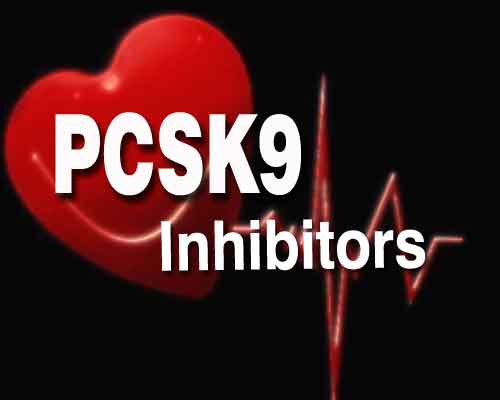- Home
- Editorial
- News
- Practice Guidelines
- Anesthesiology Guidelines
- Cancer Guidelines
- Cardiac Sciences Guidelines
- Critical Care Guidelines
- Dentistry Guidelines
- Dermatology Guidelines
- Diabetes and Endo Guidelines
- Diagnostics Guidelines
- ENT Guidelines
- Featured Practice Guidelines
- Gastroenterology Guidelines
- Geriatrics Guidelines
- Medicine Guidelines
- Nephrology Guidelines
- Neurosciences Guidelines
- Obs and Gynae Guidelines
- Ophthalmology Guidelines
- Orthopaedics Guidelines
- Paediatrics Guidelines
- Psychiatry Guidelines
- Pulmonology Guidelines
- Radiology Guidelines
- Surgery Guidelines
- Urology Guidelines
PCSK9 inhibitor Evolocumab safely cuts LDL cholesterol across all stages of CKD

PCSK9 inhibitor, Evolocumab is clinically effective and safe for lowering Low-density lipoprotein cholesterol, LDL cholesterol levels across all stages of chronic kidney disease, CKD, revealed a FOURIER trial. The study has been published in the Journal of the American College of Cardiology.
PCSK9 inhibitors are a new class of drugs that lower Low-density lipoprotein, LDL, or “bad,” cholesterol. Right now, there are two FDA-approved medications: alirocumab and evolocumab to achieve this goal. Studies show that PCSK9 inhibitors have a powerful effect and in some cases can actually prevent heart attacks or strokes but their safety in end-stage renal disease is not known.
FOURIER trial referred to as Further Cardiovascular Outcomes Research with PCSK9 Inhibition in Subjects with Elevated Risk, was conducted to compare outcomes with evolocumab and placebo according to kidney function.
The risk of adverse cardiovascular outcomes is high in patients with chronic kidney disease CKD despite the availability of lipid lowing drugs. The ability of statins, the most widely used agents, to lower the risk of cardiovascular death appears to be limited in those with severe CKD requiring renal replacement therapy. Recently, biological agents targeting the proprotein convertase subtilisin–Kexin type 9 (PCSK9) have been shown to reduce low-density lipoprotein cholesterol (LDL-C) by 50% to 60% in addition to background statin and reduce cardiovascular events.
The FOURIER trial randomized individuals with clinically evident atherosclerosis and low-density lipoprotein cholesterol (LDL-C) ≥70 mg/dl or non–high-density lipoprotein cholesterol ≥100 mg/dl to evolocumab or placebo. The primary endpoint (cardiovascular death, myocardial infarction, stroke, hospitalization for unstable angina, or coronary revascularization), key secondary endpoint (cardiovascular death, myocardial infarction, or stroke), and safety were analyzed according to chronic kidney disease (CKD) stage estimated from CKD-epidemiology estimated glomerular filtration rate.
Key findings of the study
- There were 8,077 patients with preserved kidney function, 15,034 with stage 2 CKD, and 4,443 with ≥stage 3 CKD.
- Low-density lipoprotein cholesterol, LDL-C reduction with evolocumab compared with placebo at 48 weeks was similar across CKD groups at 59%, 59%, and 58%, respectively.
- Relative risk reduction for the primary endpoint was similar for preserved function, and stage ≥3 CKD.
- Relative risk reduction for the secondary endpoint was similar across CKD stages.
- Absolute RRs at 30 months for the secondary endpoint was −2.5% for stage ≥3 CKD compared with −1.7% with preserved kidney function.
- Adverse events, including estimated glomerular filtration rate decline, were infrequent and similar regardless of CKD stage.
The authors concluded that Low-density lipoprotein cholesterol, LDL-cholesterol lowering and relative clinical efficacy and safety of evolocumab versus placebo were consistent across CKD groups. The absolute reduction in the composite of cardiovascular death, MI, or stroke with evolocumab was numerically greater with more advanced CKD.
For further reference, click on the link
DOI: 10.1016/j.jacc.2019.03.513

Disclaimer: This site is primarily intended for healthcare professionals. Any content/information on this website does not replace the advice of medical and/or health professionals and should not be construed as medical/diagnostic advice/endorsement or prescription. Use of this site is subject to our terms of use, privacy policy, advertisement policy. © 2020 Minerva Medical Treatment Pvt Ltd